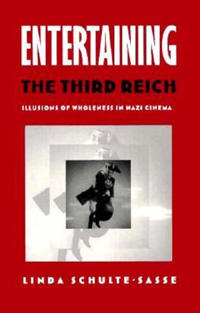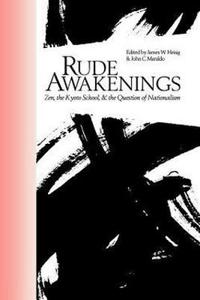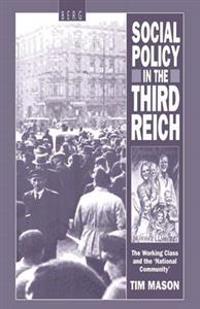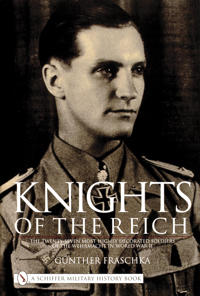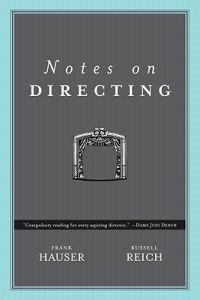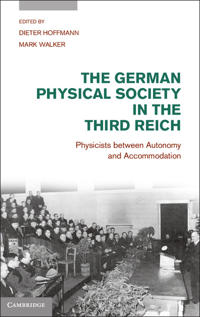Hitler's Millennial Reich (Häftad)
ISBN: 9780814776216 - UTGIVEN: 200812After World War I, German citizens sought not merely relief from the political, economic, social, and cultural upheaval which wracked Weimar Germany, but also mental salvation. With promises of order, prosperity, and community, Adolph Hitler fulfilled a profoundly spiritual need on behalf of those w[...]
Entertaining the Third Reich
ISBN: 9780822318248 - UTGIVEN: 1996-11In this persuasive reversal of previous scholarship, Linda Schulte-Sasse takes an unorthodox look at Nazi cinema, examining Nazi films as movies that contain propaganda rather than as propaganda vehicles that happen to be movies. Like other Nazi artistic productions, Nazi film has long been regarded[...]
Language Of The Third Reich (Pocket)
avVictor Klemperer
ISBN: 9780826491305 - UTGIVEN: 2006-04-27Under the Third Reich, the official language of Nazism came to be used as a political tool. The existing social culture was manipulated and subverted as the German people had their eithical values and their thoughts about politics, history and daily life recast in a new language. This Notebook, tran[...]
21st Century Socialism (Häftad)
avJürgen Reich, Susanne Kreutzer
ISBN: 9780850366570 - UTGIVEN: 201111Social Policy in the Third Reich
ISBN: 9780854964109 - UTGIVEN: 1993-09This book analyzes the attitudes and policies of the Nazi leadership towards the German working class. The author argues that the regime did not securely integrate the working class and was thus less successful in imposing mass economic sacrifices in the interests of forced rearmament. With a growi[...]
The Third Reich: A Chronicle (Storpocket)
ISBN: 9780857381750 - UTGIVEN: 2011-08The Third Reich was the name Hitler and the Nazi Party gave to the dictatorship that began in 1933 and ended twelve years later with the utter destruction of Germany and Hitler's suicide. Defined by the messianic, iconic figure of the Fuhrer, the Third Reich was one of the pivotal periods of the mod[...]
Echo of the Reich (Pocket)
avJames Becker
ISBN: 9780857500908 - UTGIVEN: 201206Chris Bronson is working undercover for the Metropolitan Police. What begins as a routine investigation into a group of hooligans vandalising sites in North West London, takes a very sinister turn when Bronson discovers the attacks are being masterminded by a Far Right group.[...]
Third Reich and the Holocaust in German Historiography (Inbunden)
avAlfred D. Low
ISBN: 9780880332866 - UTGIVEN: 1995-03Low investigates the postwar German opinions--both scholarly and populist--about the Third Reich and the Holocaust which climaxed in the mid-1980s "Historikerstreit."Low is the first historian to focus on the links between earlier post-war German judgments and those of the 1980s, showing that recent[...]
Knights of the Reich (Inbunden)
avGunther Fraschka
ISBN: 9780887405808 - UTGIVEN: 2004-09Biographies of the twenty-seven Holders of the Diamonds to the Knight's Cross from the Luftwaffe, Heer, Kriegsmarine and Waffen-SS: Werner Molders, Adolf Galland, Gordon Gollob, Hans-Joachim Marseilles, Hermann Graf, Erwin Rommel, Wolfgang Luth, Walter Nowotny, Adelbert Schulz, Hans-ulrich Rudel, Hy[...]
Notes on Directing: 130 Lessons in Leadership from the Director's Chair (Inbunden)
avFrank Hauser, Russell Reich
ISBN: 9780972425506 - UTGIVEN: 2003-04Wilhelm Reich and the Healing of Atmospheres (Häftad)
avRoberto Maglione
ISBN: 9780980231663 - UTGIVEN: 201111Black Eagle Force: Fourth Reich (häftad)
ISBN: 9780991239009 - UTGIVEN: 2013-12The world thought the evils of Nazi Germany were gone-it was wrong. Secretary of Defense Harold Baker's plane was brought down over the jungles of Bolivia by an advanced World War II German flying wing, known as the Horton, that was thought to no longer exist. Again-it was wrong. The SECDEF and the [...]
The German Physical Society in the Third Reich (Inbunden)
ISBN: 9781107006843 - UTGIVEN: 2011-12This is a history of one of the oldest and most important scientific societies, the German Physical Society, during the Nazi regime and immediate postwar period. When Hitler was appointed chancellor of Germany in 1933, the Physical Society included prominent Jewish scientists as members, including F[...]
Jewish Exiles and European Thought in the Shadow of the Third Reich
ISBN: 9781107166462 - UTGIVEN: 2017-07Hans Baron, Karl Popper, Leo Strauss and Erich Auerbach were among the many German-speaking Jewish intellectuals who fled Continental Europe with the rise of Nazism in the 1930s. Their scholarship, though not normally considered together, is studied here to demonstrate how, despite their different d[...]
John Dewey's Philosophy of Education (Inbunden)
avJim Garrison, Stefan Neubert, Kersten Reich
ISBN: 9781137026170 - UTGIVEN: 2012-09-18The comprehensive philosophical underpinnings of John Dewey's theory of education are analyzed, concentrating on oven-overlooked primary texts, with the authors connecting his philosophy with six recent and influential positions in late 20th century and early 21st century humanities, including those[...]
Nazi-Organized Recreation and Entertainment in the Third Reich
ISBN: 9781137531926 - UTGIVEN: 2017-03This book explores the activities of the Nazi regime's vast leisure programme. Shortly after coming to power in Germany, it began a large-scale undertaking to bring happiness and a good life to so-called 'Aryan' Germans, carried out by the Nazi leisure organization Kraft durch Freude. Julia Timpe tr[...]
Marketing the Third Reich
ISBN: 9781138060586 - UTGIVEN: 2017-09In this fascinating volume, Nicholas O'Shaughnessy elucidates the phenomenon of the Nazi propaganda machine via the perspective of consumer marketing, conceptualising the Reich as a product campaign. Building on his acclaimed Selling Hitler (2016), he uses marketing scholarship to show how propagand[...]
The Third Reich (Häftad)
avRoberto Bolano
ISBN: 9781250013934 - UTGIVEN: 201211A "New York Times Book Review" Editors' Choice On vacation with his girlfriend, Ingeborg, the German war-game champion Udo Berger returns to a small town on the Costa Brava where he spent his summers as a child. There, they meet another vacationing German couple, who introduce them to the darker sid[...]
Uniforms and Insignia of the Third Reich (Inbunden)
avStephen Hyatt
ISBN: 9781258010218 - UTGIVEN: 201105


